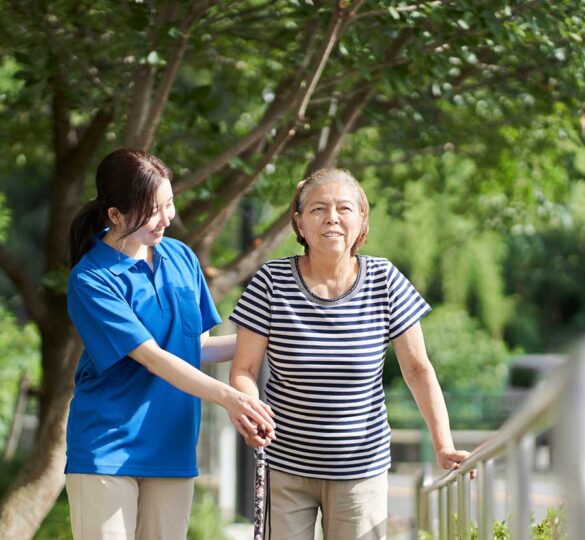Getting Help If You Have Low Vision
Some glaucoma patients have lost significant vision, making some desired activities difficult.

Some glaucoma patients have lost significant vision, making some desired activities difficult. Too often, these patients are told that “nothing can be done” by using medical or surgical treatment to improve visual function.
But, in most of these cases, there is something that can be done. With help from a low vision specialist, you can learn new skills to compensate for your limited vision, use magnifiers to help with common tasks, and get tips on how to change your living environment.
Most patients have more visual capacity than they realize. A low vision specialist will start by evaluating how much good vision you still have. Patients who have peripheral vision loss from glaucoma can learn how to compensate for a diminished visual field, helping to get around more safely and find objects more easily.
Learning New Ways to do Daily Tasks
An occupational therapist can also help you learn new ways to do daily tasks. Some examples are:
- Sort medications into weekly pill boxes.
- Use electronic devices to magnify print.
- Listen to audio rather than read books.
- Explore using large-print books and e-readers.
- Bend the tip of your finger over the rim of a cup to know when to stop pouring liquid.
Safety at Home
Home environments can be modified to make them safer. Occupational therapists help patients decide what type of lighting is most comfortable, adding ambient lighting to rooms to improve mobility, and using directed task lighting for detail activities.
Colors and contrast can be enhanced to make tasks easier. For example, patients may benefit from colored soap and towels that stand out from the tub and tile in the bathroom.
A home safety evaluation can identify hazards that may contribute to falls and injuries, such as electrical cords crossing walkways and staircases without handrails or adequate lighting.
Area rugs can be removed or secured with nonskid backing, and patients can benefit from grab bars or shower chairs in the bathroom.
Most importantly, people with low vision due to glaucoma can still enjoy a range of activities, independence, and an improved quality of life.
Article by Donald C. Fletcher, MD and Kim Schoessow, OTD, OTR/L, SCLV.
Last reviewed on May 10, 2022.

Donald C. Fletcher, MD
Donald C. Fletcher, MD is one of the world’s leading authorities on low vision rehabilitation and is a clinician and researcher in the field of retinal diseases and low vision rehabilitation. He is an Affiliate Scientist with the Smith-Kettlewell Eye Research Institute in San Francisco.